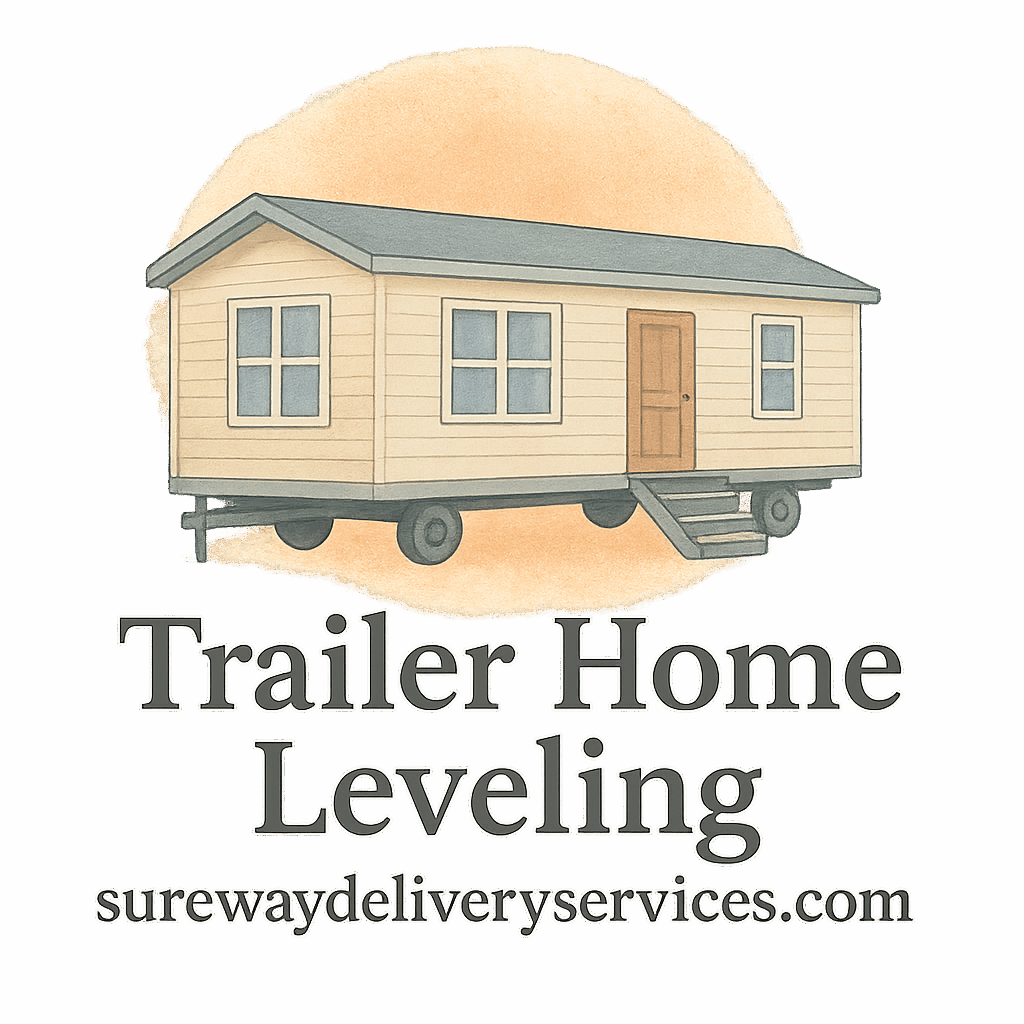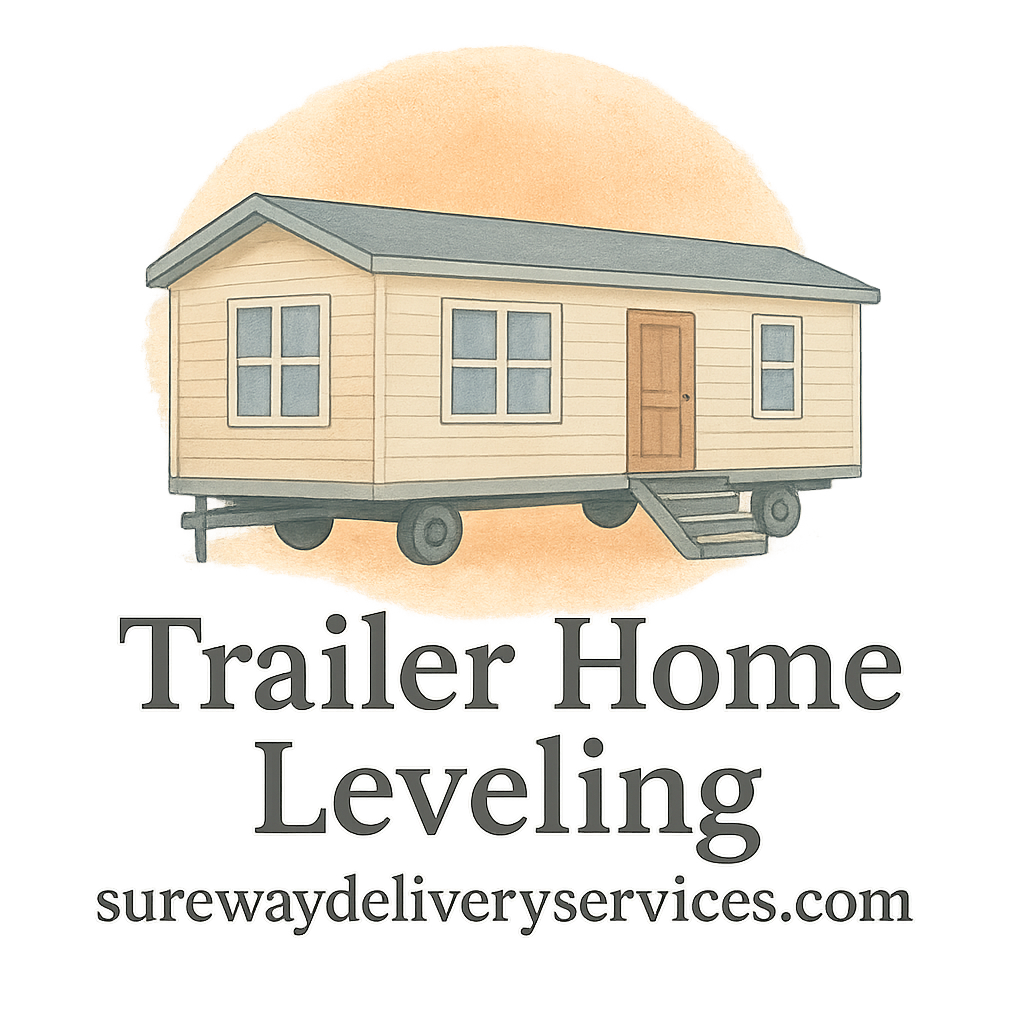Introduction
Let’s be honest—home leveling isn’t cheap. But the price tag doesn’t have to scare you away. Whether you’re dealing with a mobile home that’s a little off-balance or a trailer that feels like it’s doing a slow lean, this guide has you covered.
If you’re thinking, “How do I level my trailer without draining my savings?”, you’re in the right place. Let’s dive into 10 smart and practical ways to save money on professional home leveling, while still ensuring safety and stability.
1. Understand the Basics First
Why Knowledge Is Your First Saving Tool
Think of it this way: the more you understand, the less you overpay. Before calling in the pros, take time to learn the basics of trailer home leveling. Knowing what leveling entails helps you understand the scope of the job—and spot any unnecessary upsells.
Link to Beginner Resources
Want to get started? This detailed introduction to trailer home leveling breaks it all down.
2. Conduct Regular Inspections
Spot Problems Early Before They Cost You More
Small issues turn into big expenses if ignored. Cracks in walls, uneven floors, or doors that won’t shut right? These could be signs your home needs leveling. Doing regular inspections means you catch problems early—before they turn into wallet-busters.
Use Maintenance Checklists
Don’t know what to look for? Use this helpful maintenance inspection checklist to guide your walkthroughs. You can also explore posts tagged with inspection and checklist.
3. Learn to Recognize the Warning Signs
Don’t Ignore the Subtle Clues
If your trailer home is leaning like the Tower of Pisa, it’s already too late for small fixes. But if you catch early signs of misalignment—such as cracked skirting, creaky floors, or water pooling around the base—you might avoid a full-scale releveling.
Check out these commonly overlooked signs of leveling problems.

4. Know What It Should Cost
Break Down of Typical Costs
Understanding the standard pricing helps you avoid paying more than you should. On average, home leveling can range from $500 to over $3,000, depending on complexity, access, and size of your trailer.
Avoid Getting Overcharged
Always ask for itemized estimates. Some contractors sneak in unnecessary charges. Learn how to navigate pricing in this helpful guide on cost and budgeting and explore insights under the tags price, cost-tips, and overcharge.
5. Get Multiple Quotes
Compare Services and Value
Don’t just go with the first leveling service you find. Get at least three quotes. This gives you bargaining power and exposes shady pricing.
Pro tip: Compare what’s included in each quote. Is the cost just for jacking and leveling, or does it include inspection and warranty too?
Use the service hiring guide for help with vetting professionals.
6. Time It Right
Off-Season Deals Can Save a Bundle
Just like airlines and hotels, home leveling services have busy and slow seasons. Book during the off-season (typically winter or early spring), and you might score a discount.
Stay on top of annual maintenance trends using the annual tag to plan your services right.
7. Bundle Services
Ask About Service Packages
Sometimes you can save a good chunk by bundling multiple tasks together. For example, combining leveling with plumbing inspection or HVAC checks might earn you a discount.
Check for service package deals and ask your contractor for a custom bundle.
8. Do Some Tasks Yourself
What You Can Safely DIY
While full home leveling is best left to the pros, you can safely handle some prep and maintenance:
- Clear skirting and obstacles
- Tighten loose fasteners
- Inspect for signs of water damage
These simple DIY actions can reduce labor costs. Check out tips on trailer maintenance and trailer-tips.
9. Use the Right Tools
Invest Once, Save Long-Term
Leveling jacks, water levels, and sturdy blocks aren’t just pro tools—you can use them too. Investing in the right gear can save you hundreds in service calls.
If you’re a handy homeowner, learn about jacks and tools in this deep dive into tools and equipment.
10. Hire the Right Professionals
Check Customer Reviews
It’s not just about who’s cheapest—it’s about who’s worth your money. A well-reviewed contractor gets it right the first time, preventing costly callbacks.
Look for transparent pricing, timely communication, and solid reviews. Explore customer reviews and success stories for guidance.
Look for Recommendations
Ask neighbors or community groups for contractor referrals. Also, browse through recommendations shared by real homeowners who’ve been there, done that.
Conclusion
Leveling your trailer home doesn’t have to wreck your bank account. With smart planning, regular maintenance, and informed decision-making, you can save money without sacrificing safety. From DIY checks to off-season deals and bundling services—these ten strategies are tried, tested, and totally doable.
And remember, knowledge is your strongest tool. Bookmark Trailer Home Leveling for more deep dives, guides, and real-life homeowner advice.
FAQs
1. How do I know if my trailer home needs leveling?
Look out for sagging floors, stuck doors, or visible gaps. These are signs it’s time to inspect your home’s level.
2. Can I level a trailer home myself?
Minor adjustments? Maybe. Full leveling? It’s risky without proper tools and expertise. Best to leave it to the pros.
3. How often should I get my home checked for leveling issues?
Once a year is a good rule of thumb. Check out the annual maintenance tips.
4. What’s the average cost of professional home leveling?
It typically ranges from $500 to $3,000, depending on the size, condition, and location.
5. Are leveling services covered by insurance?
Only if the issue was caused by a covered event like flooding or foundation damage—check your policy.
6. What tools are used for leveling a trailer?
Jacks, water levels, shims, blocks, and sometimes laser levels. Learn more here.
7. Is leveling my trailer worth the cost?
Absolutely. A level home means safety, efficiency, and long-term savings on repair bills.


